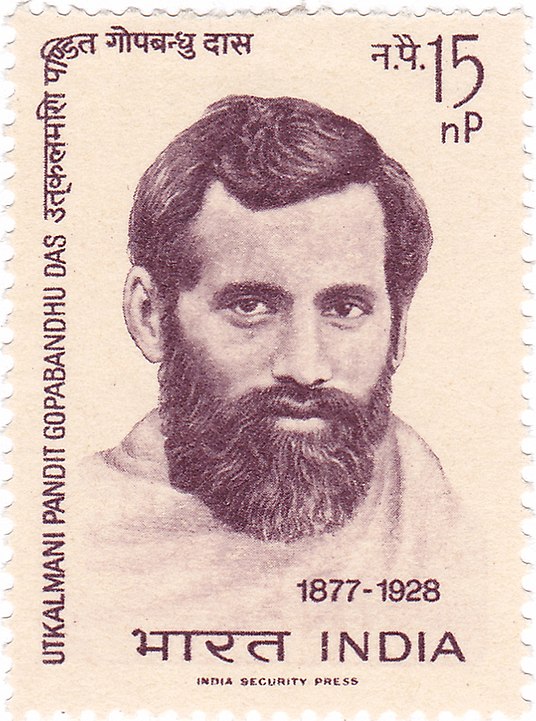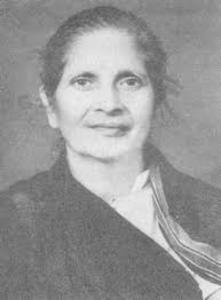Where Are the Utopias in Indian Political Thought?
In the year 1909, a new school established in Odisha’s Puri district asked its students to earn a little money for themselves by carrying the luggage of passengers in the nearby railway station at Sakhigopal. Local historical accounts of this experiment mention that many students were deeply embarrassed to undertake such a task.
At the school, students worked in the garden, wove clothes and practiced carpentry. Though such work left students very tired at night, they were not unwilling to be part of an educational experiment that sought to overcome the traditional divide between manual labour and book learning. However, to engage in manual labour outside the school environs to earn money led to considerable disquiet.
Gopabandhu Das, one of the architects of modern Odisha, was the founder of this school at Satyabadi. He executed these unusual educational experiments well before Gandhi returned to India from South Africa and challenged the socio-economic barriers separating intellectual work from physical labour.

Gopabandhu Das. Photo: India Post, Government of India.
Das had questioned the perception of education as a means to secure a degree and a job, earn a steady income, and ultimately escape the world of physical drudgery. His vision for education included a scheme for creating social leaders that would return to the village, implement small-scale radical reforms and ultimately help to create a new social order.
Gopabandhu’s imagined utopia was one of many such enterprises being launched across the country. Utopias suggest the contours of a new society that attempt to remedy contemporary ills. Political thinkers who imagined utopias did not expect to solve all problems affecting humanity. They were not only aware that the new world they visualised could throw up new problems but had anticipated that many of their followers would beat a hasty retreat if the utopia showed any signs of becoming reality.
Another radical thinker from Odisha, Sarala Devi’s utopia was a world without restrictions on bodily and sexual rights of women. In the 1960s, Sarala Devi authored articles that echoed her views, but some of them have remained unpublished. In his autobiography, a well-known newspaper editor from Odisha has recounted how he and his colleagues avoided her whenever she marched into their office with a radical article.
In one such essay, Sarala Devi had argued that menstruation was a purifying process. She had opined that since the woman became pure again after menstruation, she could claim as many male partners as she wanted as her body underwent a natural monthly cleansing cycle.
Over time, Das has been reduced to a saintly figure, while his role as a creative political thinker has been overlooked. More emphasis is given to his philanthropy, which is presented as social work, forgetting that even those acts were deeply political.
Also read: Contrary to Yogendra Yadav's Dim View, Indian Political Thought is Alive and Thriving
Das’s most well-known act of philanthropy was distributing relief materials during floods that frequently devastated coastal parts of the Odia speaking tracts in the Bengal Presidency. At a time, when the act of philanthropy towards people outside one’s family, kinspeople and caste was practiced mostly by the sovereign to safeguard his legitimacy and power, the very act of helping perfect strangers was deeply political.
A Brahmin by birth, Das did not hesitate to embrace the corpses of those who had died from natural calamities and diseases such as cholera. This gesture was no mere act of intimacy towards strangers but also posed a direct challenge to the caste and purity-pollution norms that dominated society at the time.
Sarala Devi is still revered as a firebrand feminist. Careful observation will reveal that people celebrating her today only highlight a selection of her views that are compatible with contemporary feminism, such as property rights for women. Some of her positions, which are radical even for today, have been quietly buried or erased.
For instance, in the example provided above, one notes that Sarala Devi’s approach differed from contemporary feminist thinkers who argue that menstruation is a natural or biological process, devoid of any spiritual and religious connotations. Instead, she embraced the spiritual dimension of menstruation, using it to subvert religion-induced social and sexual restrictions imposed on women.
Seen in this context, Yogendra Yadav is correct to imply or suggest that there is an alarming absence of political thinkers today. Academics Salmoli Choudhuri and Moiz Tundawala have used more illuminating terms, utopia or grand utopic futures, to bring to our consciousness a sense of what political thinking was capable of achieving before the emergence of the security state during the Cold War.
It is important to mention that both Das and Sarala Devi were not just dreamers and social workers. They were also hard-nosed politicians who took active part in electoral politics at the time. Das fought and won elections to the Bihar Orissa Legislative Council, while Sarala Devi became the first woman elected to the Odisha Legislative Assembly in 1936.

Sarala Devi. Photo: Wikimedia commons
But why has the space for utopia in our politicians’ thought worlds shrunk drastically? Perhaps our politicians are only invested in the meritocratic games offered by party and electoral politics i.e., winning and losing elections while safeguarding their stranglehold on political parties. Naturally, they have lost their appetite to experiment and fail. After all, most utopias ultimately fail, but what we forget is that they leave behind rich and lasting legacies that eventually make the world a slightly better place.
For instance, the vision of a completely classless society never succeeded in any country in the world. But critics who gleefully point towards the brutality and violence unleashed by such projects are silent about how communism shaped and softened capitalism. It was after all the fear of communism following the Great Depression that led the United States government towards a regulatory regime and welfare state to dilute the astringent effect of laissez faire economics on ordinary people. Roosevelt’s New Deal was allowed to be implemented, looking at the popularity of the Communist Party of the United States of America (CPUSA).
In America, the emerging debate over gender and sexual fluidity and use of pronouns is drawing contempt from many of its citizens. However, the project is undeniably inspired by a utopian vision where gender is no longer a fixed social construct imposed on an individual. This is precisely why people are now being encouraged to choose and declare their own pronouns.
Now, a mainstream American presidential candidate announces pronouns of her choice in her X bio. The United States Congress has embraced changes in the rules governing the House that now use gender-neutral language instead of gender-specific language. These utopian initiatives will significantly impact American society, though they currently appear ludicrously performative to a large chunk of Americans.
The MeToo movement that began in the United States a few years ago imagines a world without everyday assault and sexual harassment against women. Cynics might say that all it claimed were a few heads of influential and powerful predators in politics and the media industries. There is some truth to the argument that it was cynically appropriated by one major political party. The Democrats made a few symbolic sacrifices from their own side but refused to allow the movement to topple consequential people, such as President Joe Biden who was also accused of sexual assault.
But did MeToo fail? Looking at the controversy rocking the Malayalam film industry today, it is once again clear that utopian imaginations that spring up in one place can keep making changes in another part of the world.
In Tamil Nadu, one progressive step towards a casteless utopia is taking place within an otherwise regressive and casteist ecosystem. The state government’s selection of non-Brahmin priests for temples after training and certification is a tectonic shift from the caste-restricted, hereditary profession of priesthood in Hinduism. But the regime that is implementing this project is also guilty of callousness towards horrific torture and killings of Dalits in the state.
Ergo, utopias may carry contradictions even within their core ambitions, but abandoning the pursuit of new social orders will only impoverish and enfeeble the political process.
Sampad Patnaik is a freelance journalist. Jatindra Kumar Nayak is a translator and literary critic.
This article went live on September fourth, two thousand twenty four, at zero minutes past six in the evening.The Wire is now on WhatsApp. Follow our channel for sharp analysis and opinions on the latest developments.




